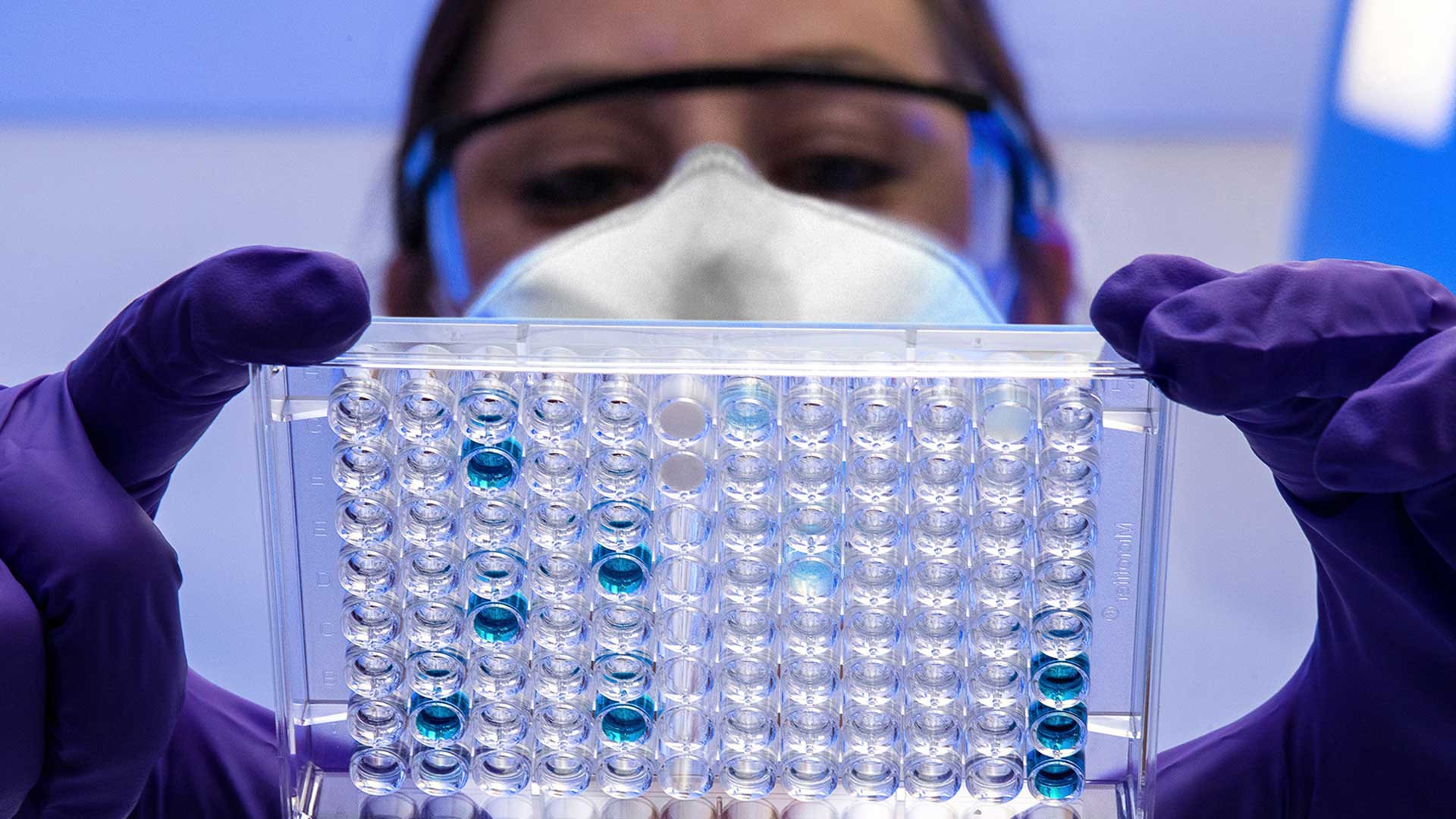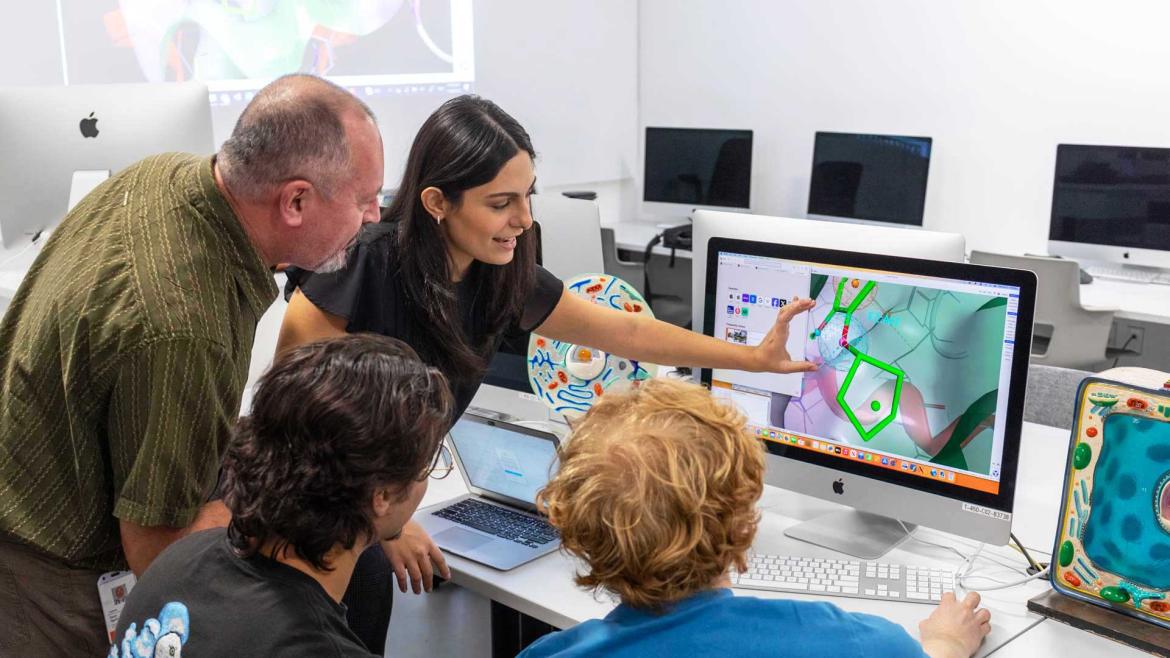Bioinformatics
About

Collecting large amounts of biological data is becoming easier and more affordable and as a result biology has become a data science. Examples of biological data include genetic sequences, genomes, epigenomes, proteomes, metabalomes and microbiomes. These large data sets require specialized and powerful computational and statistical tools for analysis. Bioinformatics is an interdisciplinary science that applies computational and statistical methods to biological information in order to make new discoveries and to solve complex biological problems.
The discovery of thousands of disease-causing genes since the completion of the Human Genome Project in 2003 exemplifies the power of early bioinformatics methods. Bioinformatics tools are now routinely used to study the underlying cause of disease and to find more effective treatments as well as to study biological patterns and develop biological and chemical models.
The Faculty of Science is pleased to offer three bioinformatics programs:
- Associate of Science Degree in Bioinformatics
- Diploma in Bioinformatics
- Bachelor of Science in Bioinformatics
Want to learn more? Please join an information session on the bioinformatics program.
Co-operative education
Langara College Co-operative Education options enable students to integrate academic studies with related, practical work experience. The program provides students with the opportunity to gain valuable paid work experience while completing their studies. Students who participate in Co-op are better prepared for the job market, and often receive a higher salary than those who opt not to take Co-op.
All of our bioinformatics programs offer Co-op. An eight (8) month Co-op is mandatory to complete the Bachelor of Science degree in Bioinformatics.
Hear what our students are saying:

Co-op allowed me to collaborate with diverse teams and strengthened my problem-solving skills.

This experience greatly boosted my confidence in my academic knowledge and technical skills while also increasing my passion for bioinformatics.

By onboarding clients onto the GenXys' clinical decision support system, I contributed to improved patient outcomes.

Co-op not only deepened my technical expertise but also gave me insight into cloud-based bioinformatics solutions.
Our employers would love to meet you:
Dr. Piru Perampalam, Copoly.ai
"The work of the co-op students has been integrated into our internal processes, contributing significantly to our ability to identify new biomarkers."

I had the opportunity to work with two co-op students from Langara College’s Bioinformatics program, and I was thoroughly impressed by their preparedness and capability. From day one, the students came equipped with a solid understanding of the foundational skills required to approach complex scientific questions and build effective solutions.
For their project, I presented them with a challenging bioinformatics problem focused on identifying novel biomarkers and gene loci of interest. After providing them with a brief overview of the requirements, as well as some recommended papers and resources, we divided the tasks between the two students. They collaborated efficiently, demonstrating strong teamwork and a remarkable ability to learn and adapt quickly.
Within just two months of starting their co-op, the students successfully developed a functional solution that met the project’s needs. Their work has since been integrated into our internal processes, contributing significantly to our ability to identify new biomarkers.
The professionalism, dedication, and technical skills displayed by Langara’s students were exemplary, and I would highly recommend future collaborations with students from this program.
Dr. Martin Dawes, GenXys Prescribing Systems
"Within weeks the co-op students were taking on complex tasks and providing potential solutions to the team."
GenXys Health Care Systems has had two Co-op students from Langara Bioinformatics program work with the company over the last three years. Both students have been exceptional. The skills displayed, the work ethic, the collaborative skills, and the overall contribution to the company were impressive. Their background knowledge of informatics and biotechnology have meant that they could start work within days. Within weeks they were taking on complex tasks and providing potential solutions to the team. We have no hesitation in recommending Langara Co-op students to BC biotech companies.
Capstone Testimony
Nimble Science
The students distilled complex biological datasets into a high-level analytical summary. Their work provided a useful glimpse into the novel insights that can be gleaned from Small Intestinal microbiome, that will serve to propel further discoveries at the frontier of GI health.
Students quickly picked up the skills necessary to tackle complex data analysis tasks assigned to them, and paid attention to the important biological and medical implications of the work they were doing. The enthusiasm they showed made the experience quite enjoyable. They effectively managed their assignments, showed good team work and organization, and delivered results on time. Students responded quickly to feedback and suggestions for improvement.
Magna Labs
Langara students worked together with Langara Instructors and Magna Labs to benchmark gut microbiome samples from three distinct human populations. Using Magna Labs’ bioinformatics QA platform, Miqa, they ran a multi-versioned metagenomic pipeline that the students containerized into assembled and assembly-free taxonomic classification branches. The students containerized their local scripts in Docker to run and benchmark their outputs using cloud computing resources in Miqa.
Working with the students at Langara was an absolute privilege. They were all intelligent individuals who were even better people. Through their work, we were able to more deeply understand the microbiome domain and its applications in Miqa, and their learning and feedback gave us valuable insights into improving both our product and processes.
Working with the students at Langara was an absolute privilege. They were all intelligent individuals who were even better people. Through their work, we were able to more deeply understand the microbiome domain and its applications in Miqa, and their learning and feedback gave us valuable insights into improving both our product and processes.
The students were very technical and could merge technical and biological concepts to inform their benchmarking strategies for their specific modules, as well as pipeline-wide ones. They were extremely collaborative amongst one another, which mirrors real-world bioinformatics teams. In addition, they were effective communicators with us and very open to constructive feedback in improving their benchmarking process. The greatest quality of all is how great of people they were - it was an absolute joy to work with them towards a successful capstone project.
Our Co-op students have been hired by the following companies:
- Genxys
- Microbiome Insights
- Langara Applied Research Centre
STEMCELL Technologies
BC Cancer
Optima Living
ProCogia

